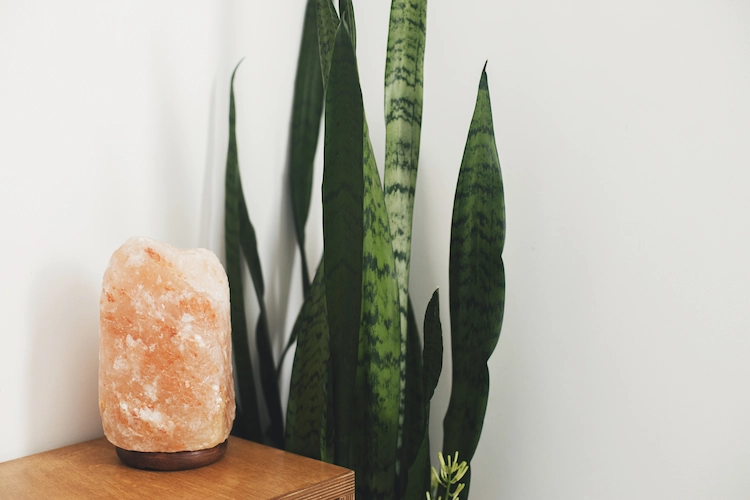Are you looking for suitable plants for bedroom that not only beautify the room but also have health benefits? Discover some of the best suggestions here!
There is a huge selection of houseplants that can decorate any living space, but which of them are suitable for the bedroom? As different room conditions can affect air quality and sleep quality, making the right choice for comfort is especially important. In addition, the much-desired comfort in the bedroom depends on factors such as colors and pollutants in the air. Taking these into account, adding certain plants could create the right atmosphere in the sleeping area. In the following article, you can learn more about making the best possible decision when choosing your green friends and decorating your bedroom.
Why can Some Plants be Beneficial for Bedrooms?
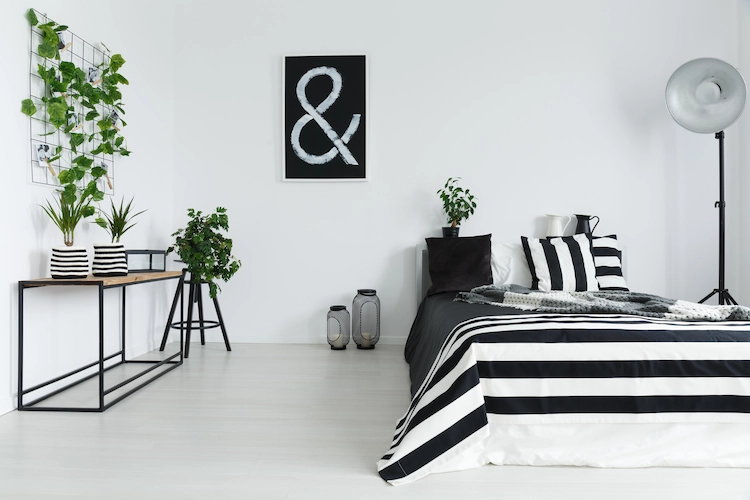
@bialasiewicz, Envato Elements
As a common part of the interior design of any home, different types of plants can naturally make your spaces feel and appear more comfortable. Some of them ensure that you wake up in a better mood and feel recharged and energized. One of their main benefits is that they absorb harmful indoor pollutants and emit oxygen. On the other hand, dry air has been identified as one of the main causes of respiratory problems, sore throats, and even skin issues.
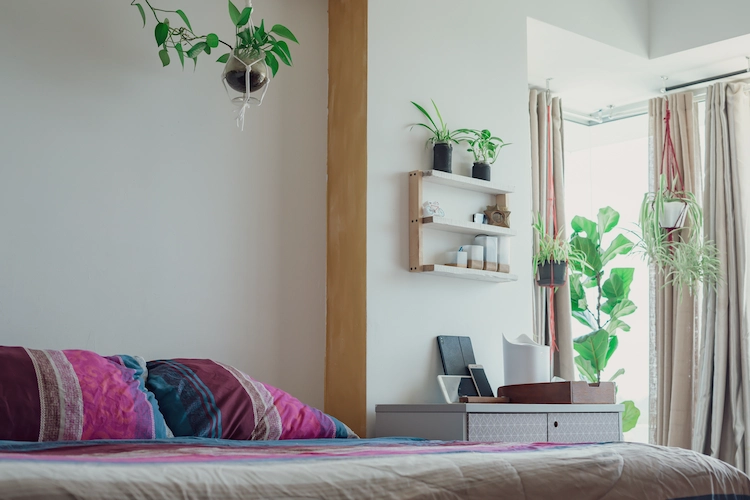
@ellinnur, Envato Elements
In addition, certain plants for bedrooms can help to maintain humidity in the room. This is possible because they release water vapor during perspiration. By doing so, the plants not only provide humidity and oxygen, but also resemble air purifiers that produce negative ions. The latter adhere to dust particles, germs, allergens and mold spores in the air and can effectively eliminate them. All of this brings numerous health benefits, especially during the night hours.
Read also: Top 6 Low-Maintenance Indoor Plants That Bloom All Year Round
What to Pay Attention to When Putting Plants in Your Bedroom?
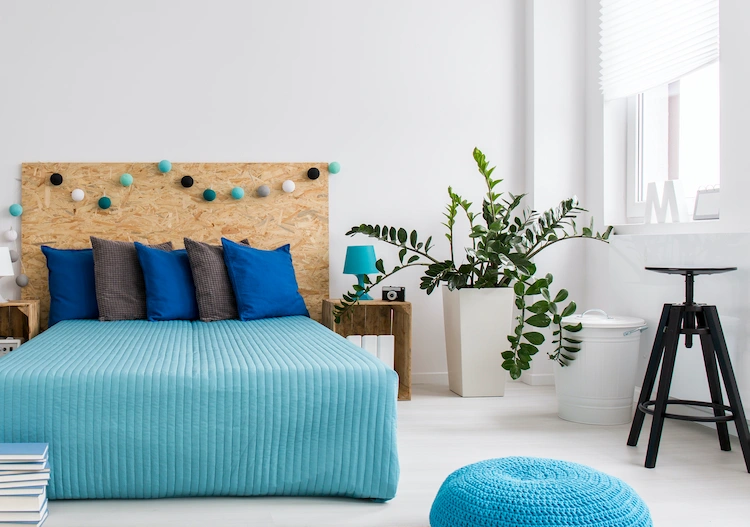
@bialasiewicz, Envato Elements
As you already know, green plants in the sleeping area can indulge the senses in a special way. Some of them thrive easily in the bedroom and will not only make it more cozy but also provide a calming effect. In addition, certain plants can enhance both resting and creativity. The production of the negative ions that we mentioned earlier, also contributes to the increase of productivity. Such indoor plants effectively filter out pollutants such as xylene, toluene, formaldehyde, trichloroethylene, and benzene naturally and effectively.
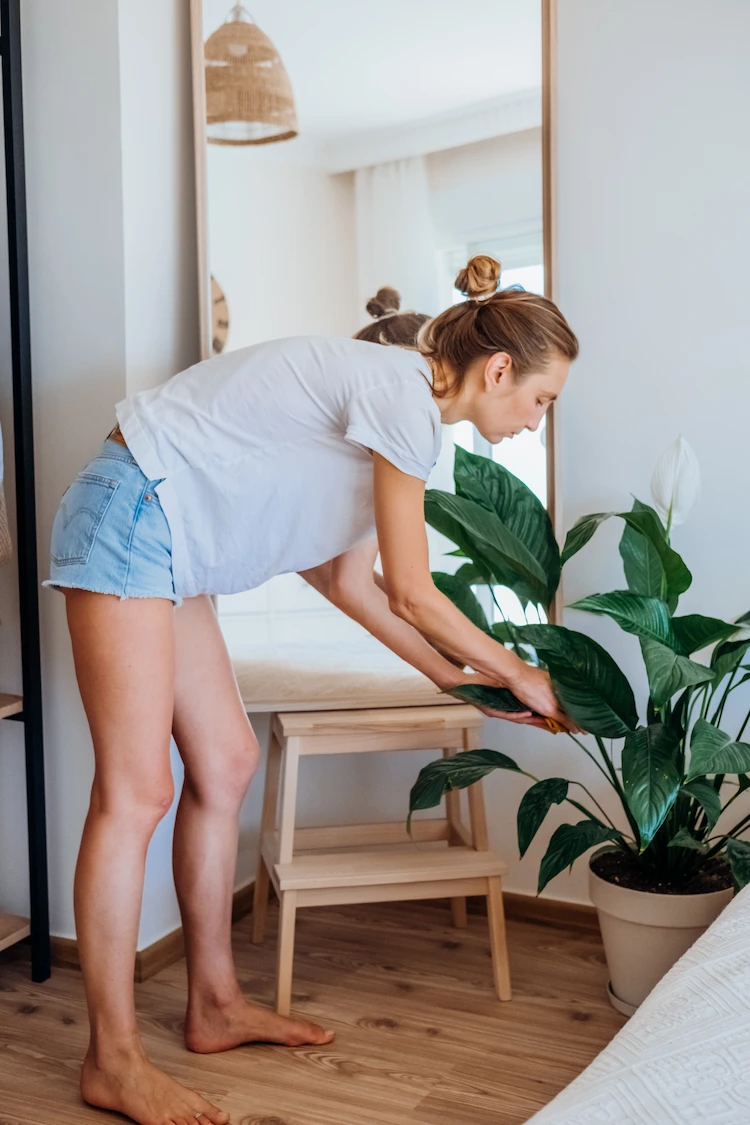
MariaSiurt, Envato Elements
If you suffer from allergies, it’s important to choose carefully the plant species that you choose for your bedroom. If you want to decorate with blooming varieties, it is advisable to remove the pollen-filled stamens from the buds. They will lose some of their natural fragrance, but it will also reduce the number of certain allergens in the sleeping area. Whatever the plant is, it’s important that you don’t keep it in proximity to your bed. Keep them at a distance of at least 1 meter.
Also read: Can the Scandinavian Sleep Method Save Your Relationship?
What are the Most Suitable Plants for Bedroom?
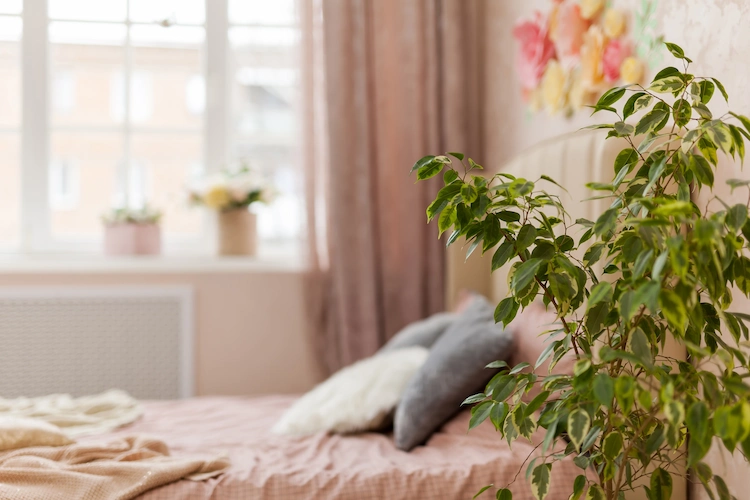
@nnaVlasova, Envato Elements
- Cactus: Although at first glance cacti with spines are considered atypical for dormitories, these succulents can be rather advantageous. They effectively eliminate bacteria, reduce harmful air ionization, and protect against electromagnetic radiation. Cacti are also really easy to take care of and come in various shapes, sizes, and colors, which can help enrich the aesthetic of your sleeping area.
- Lavender: Most of you are probably familiar with the soothing effect this plant has on people. It also helps regulate our blood pressure and reduce stress. Because it’s a garden plant you should make sure that it’s exposed to natural light in order for it to thrive indoors. Also, be careful not to overwater it!
- Valerian: This is another beautiful outdoor species that can fit perfectly in your bedroom. If you suffer from insomnia or other sleeping problems, bring a pot of valerian into your bedroom and let it work its magic! The best thing about it is that it doesn’t require any special care, so you don’t have to think too much about it.

@Sonyachny, Envato Elements
- Ponytail palm: Just as low-maintenance as the previous species, this plant is perfectly suitable for the sleeping area, as it helps purify the air. Its main advantage is that, compared to other indoor plants, the ponytail palm converts carbon dioxide into oxygen even at night. The plant also still effectively absorbs various pollutants in the air, which are found, for example, in nail polish or hair products.
- Aloe vera: Did you know that aloe vera can significantly decrease the amount of toxins in a space? It successfully absorbs around 90% of formaldehyde. In addition, aloe vera also produces oxygen at night, while absorbing carbon dioxide.
Other suitable plants for bedrooms are:
- Peace lily
- Kalanchoe
- Philodendron
- Bamboo
- Bay tree
- Fiddle-leaf fig
- Rubber tree
- Golden cane palm
- Begonia
- Ivy
Read also: Does Kalanchoe Fear Cold? How to Overwinter It & Ensure New Blooms?
Which Plants to Avoid Putting in Your Bedroom?
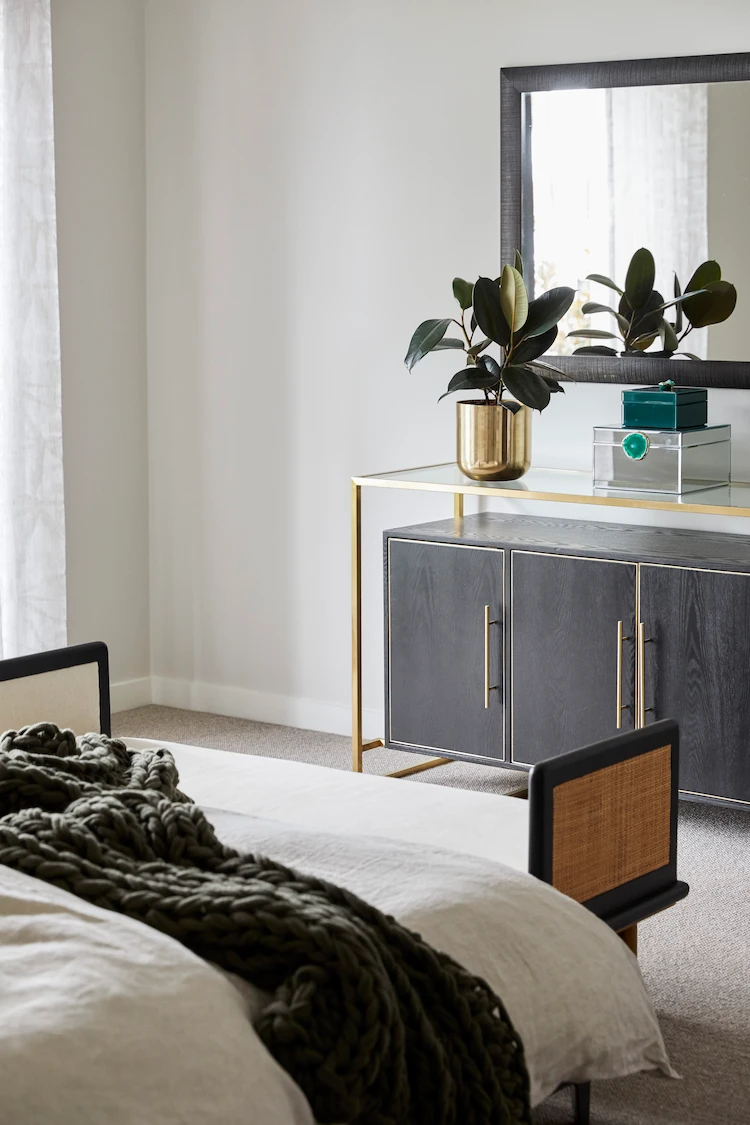
Picsuite, Envato Elements
There are a lot of plants that can live indoors, however, some of them must stay away from your bedroom at all costs! People have polarizing opinions on whether to keep plants in the sleeping area at all, as humans also breathe and emit carbon dioxide at night as a counter-reaction to photosynthesis. Pets also emit CO₂ when they breathe, which also feeds into these concerns. However, carbon dioxide is harmless in small amounts, which is often confused with the more dangerous carbon monoxide.
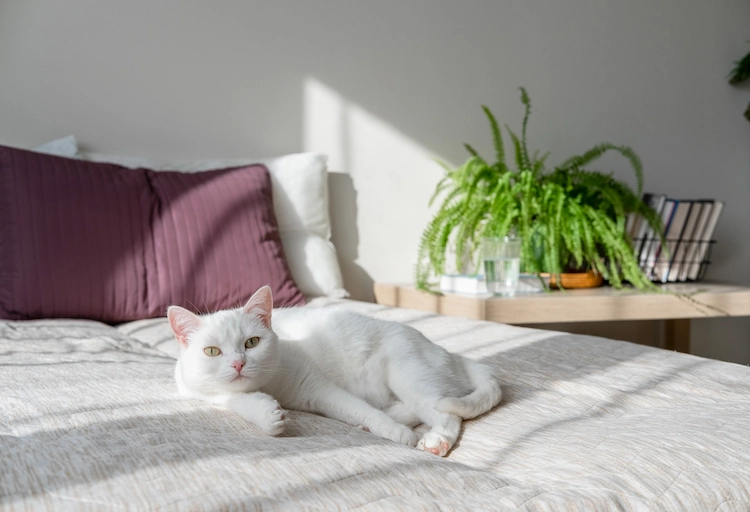
@moonlightsv, Envato Elements
- Monstera (Swiss Cheese Plant): Although there is no scientific proof to back up this statement, Monstera is considered to be an “energy vampire”. Allegedly, during the night it impacts your senses negatively.
- Some lily plants that are too fragrant can have a negative impact on your respiratory system.
- The scent of a coniferous tree is generally considered pleasant, but it can boost your appetite and cause excessive cravings during the night.
- Try to avoid toxic plants such as Dieffenbachia, Euphorbia (also known as “wolf’s milk”), Oleander, Poinsettia, Cyclamen, and Rohdea japonica. Although they release toxins only upon contact and don’t cause health hazards, they are not a suitable choice for the bedroom.
Read also: Which low light houseplants should you get in your home? Here are our top 5 just for you!

